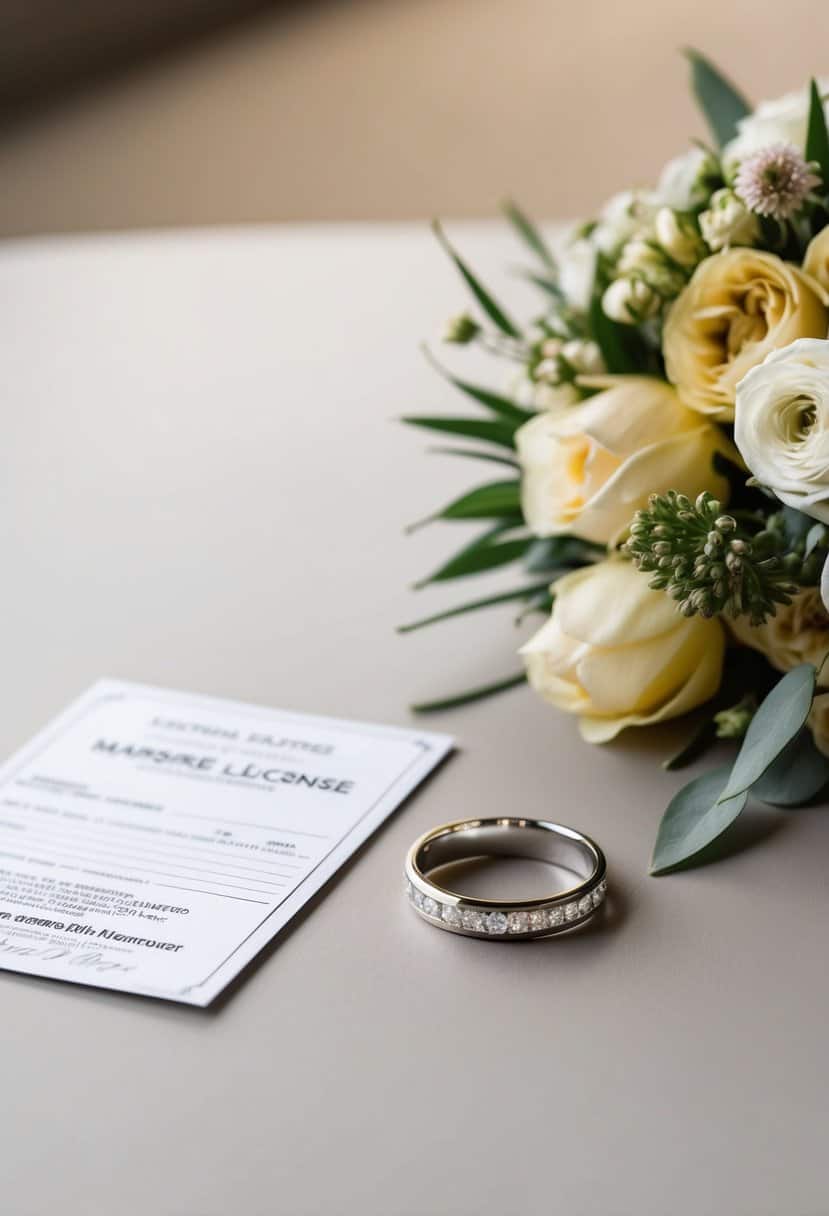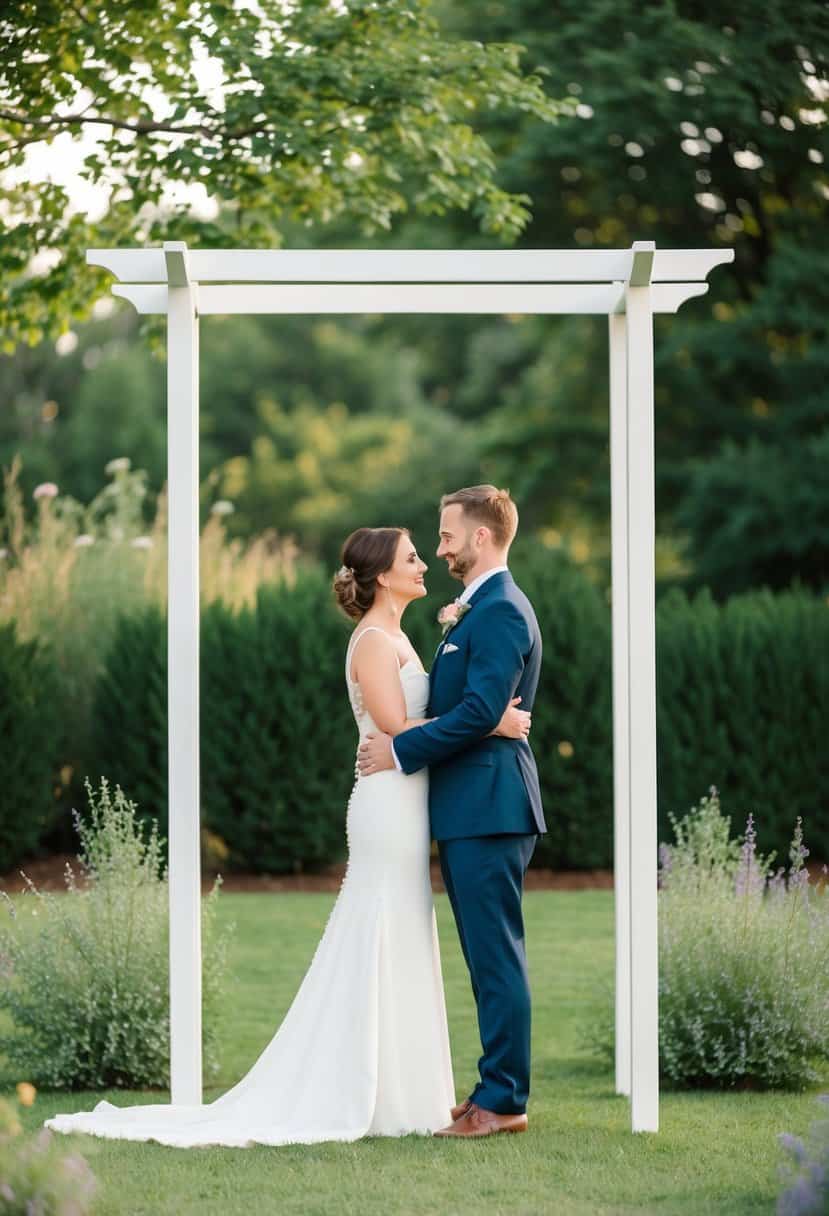Can You Get Married Just the Two of You? Exploring Intimate Wedding Options
Getting married can be a lot of work, but it doesn’t have to be. If all you want is an intimate ceremony, you might be wondering if you can get married with just the two of you. Yes, you can have a beautiful ceremony with just the two of you, creating a day that’s special and personal. Many couples are choosing this path for a stress-free and unique experience.

An intimate wedding can happen anywhere you like, from the top of a mountain to a cozy backyard. You won’t need to worry about a guest list, which means you can focus on what matters most to you. If you’re looking for some ideas, check out this guide on the essentials of an intimate wedding.
Even if it’s just the two of you, there are still a few legal steps you need to take. Depending on your state, you may need a marriage license and possibly a witness. For specific details, check the legal requirements in your area to ensure everything is in place for your special day.
Understanding Legal Foundations

When planning to get married just the two of you, it’s crucial to know the legal aspects involved. From acquiring a marriage license to understanding legal requirements, each step ensures your marriage is recognized. In some cases, consulting a family law attorney might be necessary to navigate complex situations.
Marriage License and Certificate
A marriage license is your initial step towards getting married. You need to apply for this legal document in advance and meet specific state requirements, such as age and residency. Once the ceremony is complete, the officiant issues a marriage certificate. This certificate serves as legal proof of your marriage and is essential for name changes or financial matters. Ensure all forms are correctly filled out to avoid any delays.
Legal Requirements for Marriage
Each state has particular legal requirements to get married. These may include age limits, which often require parental consent if under a certain age. Mental capacity is another requirement, ensuring both parties understand their decision. You’re also required to be sober when applying for the marriage license. Ensuring you meet these criteria is essential for a valid marriage.
Family Law Attorney Involvement
While many can handle the marriage process without legal help, certain circumstances might need a family law attorney. If you’re dealing with complicated legal issues like prenups or significant assets, consulting an attorney can be beneficial. They can provide guidance on protecting your interests and ensuring all legal documents are in order, giving you peace of mind.
The Essentials of the Marriage Process

Getting married is a special journey, and understanding the key steps can make the process smoother. You’ll need to apply for a marriage license, interact with the county clerk, and choose an officiant who fits your style.
Filing the Marriage License Application
The first step in the marriage process is applying for a marriage license. You can usually do this at the county clerk’s office, where you need to fill out an application form. It’s important to bring necessary documents like identification and proof of residency.
Sometimes there’s a waiting period, so plan ahead to avoid stress. Fees vary by location, so check with your local office. Some places may allow you to complete parts of the application online. This can save time, but you may still need an in-person visit to finalize the paperwork.
Role of the County Clerk
The county clerk plays a key role in the marriage process. When you visit their office, they will guide you through the application procedure. They’ll verify your documents and help with any questions you might have. This step ensures your marriage is legally recognized.
They also provide information about the marriage ceremony itself. Some county clerks can perform ceremonies right at the office. This can be a simple and quick way to tie the knot if you’re planning a small and intimate wedding with just the two of you. Keep in mind office hours and any appointment requirements.
Finding an Officiant
Choosing the right officiant is important for setting the tone of your ceremony. The officiant could be a religious leader, a judge, or a designated person authorized by the state. Your choice should reflect your personal beliefs and the style of ceremony you want.
Meet with potential officiants beforehand to discuss your vision and any specific vows or rituals you wish to include. Make sure they are available on your chosen date and location. Some areas have specific guidelines for who can legally oversee a wedding, so double-check these requirements.
Types of Marriages

Marriage can take many forms, reflecting different legal, cultural, and social traditions. It’s important to understand the unique aspects of various types of marriages for those considering tying the knot.
Same-sex Marriage and Civil Unions
Same-sex marriage is legally recognized in many countries, ensuring that same-sex couples have the same legal rights as heterosexual couples. This became a landmark achievement in the United States with the Obergefell v. Hodges Supreme Court ruling in 2015. It grants same-sex couples access to marriage licenses, joint tax filings, and the legal benefits and responsibilities of marriage.
Civil unions were created as an alternative to marriage, initially offered in places where same-sex marriage wasn’t legal. They provide some of the legal benefits of marriage, like inheritance rights and health care decision-making, but may lack other rights. While some regions have phased out civil unions with the legalization of same-sex marriage, they remain an option in areas where marriage equality has not yet been achieved.
Common Law Marriage
Common law marriage occurs when a couple lives together for a significant period and presents themselves as married without an official ceremony or license. This type of marriage is legally recognized in a few jurisdictions and varies in terms of the requirements needed to establish it. Key factors may include living together for a specific amount of time and having the intent to marry.
It’s essential to know that not all places recognize common law marriage. If you plan to rely on this type of union, it’s vital to check local laws. Couples might find that even if common law marriage is recognized, it may not provide all the legal benefits that come with a formal marriage, such as tax breaks or property rights.
Planning Your Wedding Day

Planning a wedding for just the two of you can be a special and unique experience. Consider your ceremony style, the role of witnesses, and how to personalize the day for both you and your partner.
Deciding on a Ceremony Type
When it comes to your marriage ceremony, there are several options. You might choose a simple civil ceremony at a courthouse, which is typically quick and formal. This choice may appeal to those seeking something straightforward.
Alternatively, a more personal ceremony at a scenic location can add a memorable touch. Beaches, gardens, or a favorite city landmark are popular options. Depending on your location, you might have domestic partners as officiants, adding a personal touch.
It’s essential to consider what resonates most with you and your partner. The type of ceremony sets the tone for your entire wedding day, so choose based on what feels right for both of you.
Witnesses and Their Role
Even if you’re planning a small wedding, you’ll likely need witnesses. Most places require two witnesses to sign your marriage certificate. Think about close friends or family members who can attend with you.
These witnesses play a crucial role—they make your marriage ceremony official. Pick people you trust and who understand the importance of their role.
In some cases, if no one is available, the venue may have staff to act as witnesses. They ensure everything runs smoothly so you can focus on the moment.
Creating a Personalized Experience
Making your wedding day meaningful is essential to create lasting memories. One way to personalize your experience is by writing your own vows. This allows you to express your feelings in a unique and intimate way.
Consider adding special touches to reflect your relationship. This could be a favorite song playing during the ceremony or sharing a private meal afterward. If you’re adventurous, a simple getaway after the ceremony can add excitement.
Think about what makes your relationship special and incorporate those elements. Planning these small details guaranteed your day is truly yours.
After the ‘I Do’s’

Once you’ve exchanged vows, there are still important tasks to tackle.
Marriage License: First, ensure your marriage license is filed correctly. The time window for this can vary, so check the specific requirements for your area.
For more details, check out this guide on marriage license requirements.
Name Changes: If you’re planning to change your name, you’ll need to update documents like your Social Security card and driver’s license. Remember to inform your bank and other important institutions.
Financial Planning: Now might be a good time to review your finances together. Consider things like joint accounts, budgeting, and financial goals.
Legal Documents: Update important documents, such as your will, to reflect your new marital status. These updates ensure that your wishes are honored and can save a lot of grief later.
Celebrate Your Way: Arrange a small dinner or getaway if you just want some quiet time. This is your moment; enjoy it in a way that feels right for the two of you.
Taking care of these steps helps set the foundation for your life together. Enjoy this new chapter!



